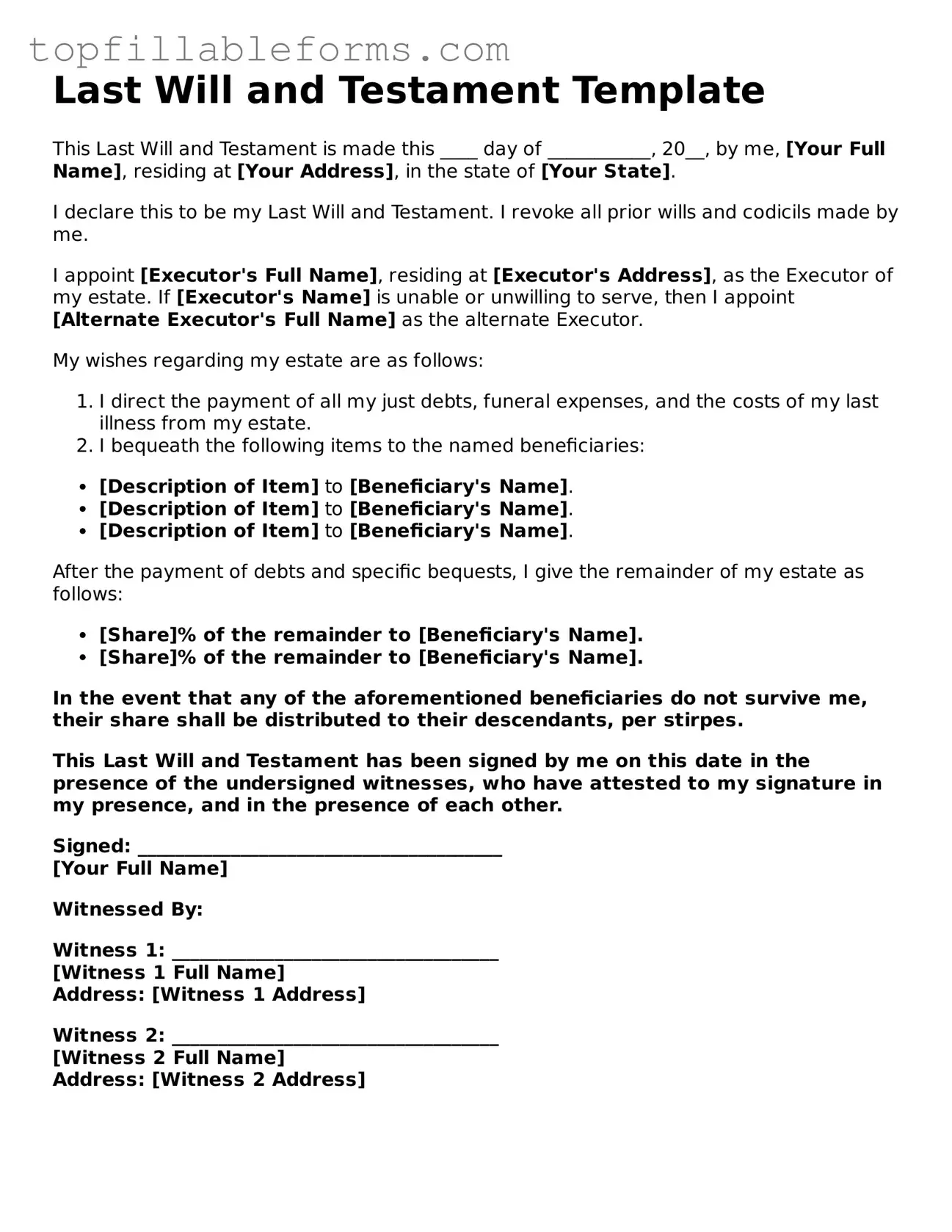Free Last Will and Testament Form
A Last Will and Testament is a legal document that outlines an individual's wishes regarding the distribution of their assets after death. This essential form allows you to specify who will inherit your property, care for your dependents, and execute your final wishes. Understanding its importance can ensure your legacy is honored and your loved ones are cared for according to your desires.
Open Last Will and Testament Editor Here

Free Last Will and Testament Form
Open Last Will and Testament Editor Here
Finish the form now and be done
Finish your Last Will and Testament online by editing, saving, and downloading fast.
Open Last Will and Testament Editor Here
or
▼ PDF File
